Our editors independently select these products. Making a purchase through our links may earn Well+Good a commission
This Herb Is a Staple in Sardinia, Where People Live To Be Over 100 in Good Health
Fennel is a staple in Sardinia, a Blue Zone where many people live to be over 100 in good health. Learn about fennel benefits from an RD.
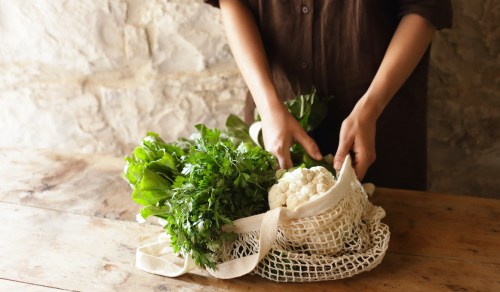
Your kitchen is full of cooking staples that, besides making food taste delicious, are actually scientifically linked to longevity. Olive oil, turmeric, and garlic are a few longevity superstars health experts rave about on a regular basis. But there’s another one that’s a little more unexpected: fennel.
Experts in This Article
Blue Zones expert and author of The Blue Zones Secrets for Longer Living
Lucina Corgiolu, RD, is a dietitian based in Sardinia, Italy, specializing in diabetes management and metabolic diseases.
Dan Buettner, a longevity expert has seen first-hand how fennel (a flowering plant in the carrot family that has a mild licorice flavor) is used on a regular basis in Sardinia, Italy, a Blue Zone region where people regularly live to be over 100 in good health. “Fennel grows wild in Sardinia, so it’s abundant and cheap there,” Buettner says. “It’s used in Sardinian cooking in soups, stews, and salads,” he says.
Lucina Corhiolu, RD, an Italian registered dietitian who lives in Sardinia, echoes Buettner in saying that fennel is widely used in this longevity hot spot. “Fennel is an ingredient in many dishes from our region, using both the fresh leaves and seeds,” she says. “The fresh, chopped leaves are added at the end of the preparation of soups, like vegetable minestrone, or with legumes. It’s also an important ingredient for a winter soup called favata, made with broad beans, cabbage, and pork. We also use them to season meats, in sweets, in the preparation of olives in brine, to flavor brandy or to be used as a digestive liquor, or simply to sip as an herbal tea.” That’s a lot of uses!
Buettner emphasizes that incorporating fennel into your meals is only one small part of a longevity-supporting diet. In his new book, The Blue Zones Challenge, Buettner explains that in Sardinia, whole grains, legumes, meat, fish, poultry, olive oil, and a wide range of other herbs are all part of how they eat as well. Buettner says it’s important to think about your eating habits as a whole as well as longevity-supporting habits outside of food, including movement and mindset. But it’s a small step that is backed by science. Curious as to how? Keep reading to learn more about fennel benefits.
5 fennel benefits that make it a longevity supporting all-star
1. Fennel is high in antioxidants
Both Buettner and Corhiolu are quick to point out that fennel is high in antioxidants, which are linked to supporting both brain and heart health. “The fennel seeds in particular are an especially good source of flavonoids, a type of antioxidant,” Corhiolu. This is worth calling out because flavonoids are linked to helping to lower and prevent chronic inflammation.
2. Fennel is good for the gut
There are a couple reasons why fennel is good for digestive health. Corhiolu says that one reason is that it has fiber, key for keeping the digestive tract running smoothly. Fennel is also known to soothe the stomach. For this reason, sipping fennel tea has long been an Ayurvedic remedy for bloating and gas. Consider it your all-natural replacement for Tums. “It absorbs stomach gas and eliminates it,” Corhiolu explains.
3. It’s good for the lungs
If you’re coming down with a cold, sipping on fennel tea can help. A scientific article published in the journal BioMed Research International states that fennel stimulates the contraction of the smooth muscles of the trachea, which helps clear out mucus and harmful bacteria.
4. Fennel helps lower blood pressure
The same scientific article says that fennel has been linked to lowering blood pressure, directly benefiting cardiovascular health. This is likely because of those powerful antioxidants!
5. Consuming fennel could support your memory
In animal studies, consuming fennel extract has been linked to improving spatial learning and memory. More research needs to be done to see if this also occurs in humans, but if so, it makes fennel a major brain-supporting herb.
Getting excited to cook with fennel? Below are five Sardinian-inspired recipes to try:

1. Fennel minestrone with orzo
As both Buettner and Corhiolu have said, minestrone is a Sardinian favorite, and fennel is a key ingredient. This hearty soup is full of other longevity-supporting foods too, like cannellini beans, garlic, and rosemary.
Get the recipe: fennel minestrone with orzo
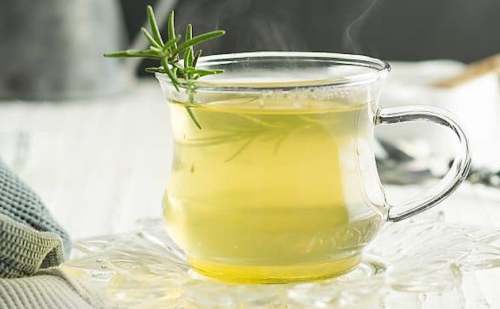
2. Fennel tea
If you want to use fennel to calm an uneasy stomach or as part of a remedy for getting over a cold, simply enjoying it as a tea is a great way to reap the benefits. In this recipe, it’s simply mixed with ginger, hot water, and a little honey.
Get the recipe: fennel tea
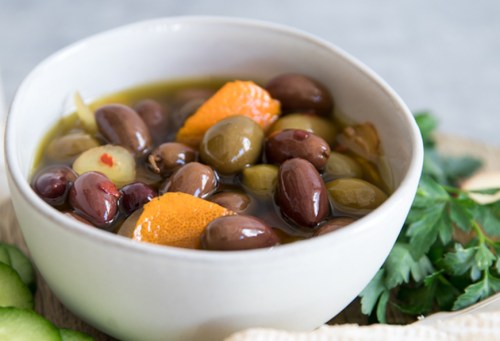
3. Orange, fennel, and garlic marinated olives
Marinated olives are a common appetizer in Sardinia and this recipe shows how to incorporate fennel right into the mix. The citrus gives an unexpected burst of brightness.
Get the recipe: orange, fennel, and garlic marinated olives
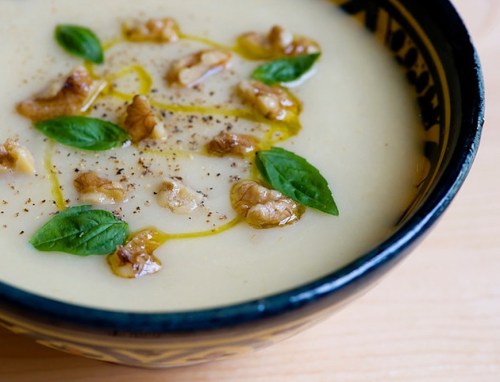
4. Chilled fennel soup with buttered walnuts
Walnuts aren’t typically thought of as a go-to soup ingredient, but incorporating them into your bowl is a great way to add protein. Like fennel, the nut is also good for the heart. This recipe calls for them both, along with just six other simple ingredients.
Get the recipe: chilled fennel soup with buttered walnuts
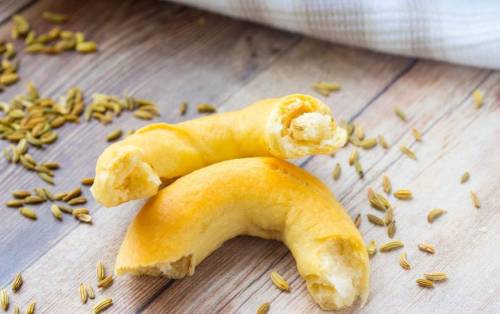
5. Taralli with fennel
Taralli is an Italian snack food that’s similar to breadsticks made with just a few ingredients: flour, water, yeast, olive oil, and…fennel! Enjoy it as a longevity supporting snack.
Get the recipe: taralli with fennel
Fennel is just one ingredient used in traditional Sardinian cooking that makes their way of eating beneficial for longevity. There are so many others to experiment with too—that’s the fun of it! Not only will your body benefit, but your meals will too.
Oh hi! You look like someone who loves free workouts, discounts for cutting-edge wellness brands, and exclusive Well+Good content. Sign up for Well+, our online community of wellness insiders, and unlock your rewards instantly.
Sign Up for Our Daily Newsletter
Get all the latest in wellness, trends, food, fitness, beauty, and more delivered right to your inbox.
Got it, you've been added to our email list.










